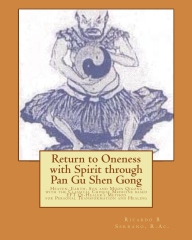Philippines in ITLOS vs China

PHL asks China to respect outcome of arbitration in territorial dispute

US, EU warn China on need to respect South China Sea ruling on dispute with PHL
What we are seeing now – and even our government’s own efforts toward upgrading our military could be counted as a part of it – is the beginning of what looks very much like an arms race in our part of the world, and not the sort that can be explained away by the necessity to defend against threats like extremist terrorists. Everyone in the region has suddenly taken a great interest in building up conventional military capabilities, because one particular name keeps coming up in every conversation about plausible threats to security: China.
The question is, why?
We have to wonder whether China anticipated this sort of reaction, and if so, what it hopes to gain from it. It is not an obvious economic benefit to China; although it is making inroads into the world’s arms market, it is not yet a popular source of military hardware, certainly not among regional countries. Given that it has presented such a universal risk to all concerned, China’s intent certainly cannot be to hope to sow discord among nations it threatens; if anything, its aggressiveness has improved prospects for regional cooperation.
And if China simply believes its neighbors could never match its firepower (so long as it assumes – probably correctly – that it is likely to never face the US in a fight), most military experts believe the Chinese would be in for a nasty surprise; it has evolved from the unwieldy, badly-equipped force that got its nose bloodied by the Vietnamese after making an ill-advised invasion of its southern neighbor in 1979, but still is regarded as having an advantage in numbers and not much else.
China should appreciate that its otherwise welcome moves to play a bigger role in the region and the world – its Asia Infrastructure Investment Bank (AIIB) and proposed Free Trade Area of the Asia-Pacific are a couple of examples – are being severely undermined by its provoking a dangerously counterproductive return to militarism in our part of the world. Any victory it might hope to win, either through actual hostilities, or just by posing the threat of them, would by a Pyrrhic one, with more negative results for China than it realizes.
China to establish international maritime judicial center
This isn’t the first time Zhou Qiang, the chief justice of the Supreme People’s Court, has expounded on the role of legal work in solidifying China’s maritime claims. Last December, Zhou attended a meeting on China’s maritime courts in Qingdao, a major port city in Shandong province. There, Zhou emphasized that China must “greatly strengthen the work of maritime cases in order to provide strong legal assistance and safeguards for building a maritime power and implementing the ‘Belt and Road.'” He called China’s maritime courts an “important part” of maritime strategy and control; by exerting judicial control over all development and resource extraction activities within Chinese-administered waters, Zhou said, the courts can defend China’s “blue national soil.”
In that same speech, Zhou raised the idea of an “international maritime judicial center.” In particular, Zhou envisions the maritime judicial center as eventually having “relatively high international influence.” To help achieve that end, Zhou recommended “widely publicizing” influential judgments and important judicial explanations to “endlessly broaden international influence.”
China has made no secret of its ambition to use legal means – “lawfare” – to achieve national security goals (including in the South China Sea). China has, for instance, condemned the Philippines’ resort to international arbitration for the South China Sea disputes largely on legal grounds. Though Beijing has repeatedly refused to participate in the case, its legal scholars nonetheless crafted a document outlining China’s argument that “the Arbitral Tribunal manifestly has no jurisdiction” over the Philippine case (arguments that were considered by the tribunal, though it largely decided in Manila’s favor on the jurisdiction question).
The Philippines’ arbitration case provides the necessary context for China’s interest in setting up its own international maritime judicial center. Recently, China has been experimenting with creating its own alternatives to existing international structures – particularly when it feels the deck is stacked against it in the current system. From the Asian Infrastructure Investment Bank to the Conference on Interaction and Confidence Building Measures in Asia (CICA), Beijing sees great value in promoting international or multilateral lateral fora where it can either control the agenda outright or have the largest influence. Where China does not see the international community moving to make space for its rise and respect its interests, Beijing has proven perfectly willing to create its own institutions. Its ultimate goal, as in the case of the international maritime judicial center, is to have these alternative or parallel structures gain international influence, thus altering global systems in China’s favor.
The creation of an international maritime judicial center with Chinese characteristics thus fits into a larger pattern. China will likely say all the rights things – that the center is not meant to usurp other international maritime courts; that it is open to participation from all comers – but in practice, the center will act to establish a parallel judicial center where China’s interpretation of the law rules. Meanwhile, it could serve double-duty by hearing cases related to the South and East China Seas, thus providing evidence of Chinese jurisdiction over disputed areas.
See Amid sea disputes, China to set up maritime ‘judicial center’
Is a Chinese Maritime Judicial Centre credible?
Anticipating an adverse decision from the UN Arbitral Tribunal on its sweeping territorial claim over almost the entire South China Sea, China has declared it would establish an international maritime center as it seeks to shore up its claim, which is at the center of an escalating regional dispute…
According to the AFP, the new maritime center will help China “implement its strategy of becoming a powerful maritime country.” It quoted Zhou Qiang, head of the Supreme People’s Court, as he delivered a report at the annual session of the communist-controlled National People’s Congress. Zhou said the center would “resolutely defend China’s national sovereignty, maritime rights and interests, and other core interests.” His statement sends the message that China is taking a tough hardline stance to reinforce its gunboat diplomacy and its building of a chain of fortresses built on reclaimed land in disputed territories, including those claimed by the Philippines.
The planned maritime center is as offensive as the encroachment of China’s Coast Guard and Navy into disputed territories in the South China Sea. China’s declaration in effect means that it will establish an international maritime court supplanting the UN Arbitral Tribunal…
China’s steady buildup of military facilities in the Spratlys has prompted US officials to warn that if the buildup is left unchecked, Beijing would raise the risk of military conflict. And the New York Times reported that the scale of the multibillion-dollar effort of China has “challenged the status quo that has defined the Western Pacific since the end of World War II.”
Tension between the United States and China has spiraled, with the two sides reaffirming their unwillingness to back down. The standoff has led a top US general to say that there is “a possibility of a miscalculation” leading to conflict in the increasingly militarized region. Gen. Lori Robinson, commander of the Pacific Air Forces, said that the United States would continue to fly daily missions over the South China Sea despite China’s new missile batteries. The general urged other nations to exercise their freedom to fly and sail in international space and waters claimed by China, “or risk losing it throughout the region.”
As the New York Times reported, “While officials in Washington say China is nowhere near gaining the capacity to keep American forces out of the South China Sea, analysts say the buildup will make it more difficult for the US Navy to quickly defend allies with weaker militaries, like the Philippines.”
See China seeks new maritime tribunal to replace UN

3 possible scenarios as PHL awaits resolution of arbitration case vs China
— Justice Carpio
See 3 possible scenarios as PHL awaits resolution of arbitration case vs China — Justice Carpio
Carpio says president who shares West PH Sea with China should be impeached
China offers to talk, but PH will wait
Philippines-US alliance seen as cornerstone of peace in Asia-Pacific
China tensions top agenda as Pentagon chief heads to Asia
US defense chief lays out new military aid to Philippines
Asian nations seeking closer US ties over China – Pentagon
Brave PH fisherman stands up to China
Why the Philippines Is Critical to the US Rebalance to Asia
HOW ELECTIONS COULD CHANGE MANILA’S SOUTH CHINA SEA POLICY (OR NOT)
Rocket System of United States will be Installed in Palawan
Panama Papers: Family of China’s President Xi implicated
China defends its right to set up air defense identification zone
UN court verdict on sea row out soon
US, Japan warships arrive for war games
Indonesia to Respond After South China Sea Case: Minister
What’s Behind US Military Moves in the South China Sea?
Justice Carpio: Arms race possible if UNCLOS fails to rein in China
Carpio: 3 possible scenarios in South China Sea arbitration ruling
US: Int’l community should urge China to follow Hague ruling
US says China risks confrontation with neighbors if it ignores tribunal ruling
Dredging Up Disaster in the South China Sea
South China Sea War Escalates: US Submarine Docks In PH After China Attacked Filipino Civilians
Water Wars: In the South China Sea, Beijing Faces Twin Threats of New U.S. Military Presence and Pushback from an Old Friend
Analyst: Manila vs Beijing ruling to affect nations with similar claims
Aquino creates West Philippine Sea task force
Army to create ‘territorial defense division’
EDITORIAL – A threat in the neighborhood
US to send rocket launchers and Missiles to PH for military drills
Chinese vessels ram PH fishers’ boat at Panatag
PH, US agree on 5 ‘bases’
US sees new Chinese activity around South China Sea shoal
Arbitration upholds rule of law in the South China Sea
AFP, U.S. Army preparing for war games
A dangerous showdown looming with China
PAF’s FA-50 fighter jets to participate in PH-US war games
Japan to mirror PH’s move by seeking international arbitration over dispute with China?
US says losing access to China-claimed waters would be huge
CHINA SECURITY: China May Have Accidentally Drawn India Into Maritime Disputes
EU: End militarization of South China Sea
China to establish international maritime judicial center
Court verdict looms in Philippines v China dispute in South China Sea
Stay the course: Del Rosario’s parting words on South China Sea
Gov’t welcomes US patrols as a deterrent vs China – Gazmin
After U.S. show of force, China takes hard line on South China Sea
China closing in on the Philippines as US sends carrier group to South China Sea
China won’t budge on South China Sea sovereignty
China says it should control the South China Sea because it ‘discovered’ it first
US general: Air Force to keep flying over South China Sea

First round of oral arguments vs China case at the Hague

UN tribunal ends hearings; PHL hopeful it will rule to assume jurisdiction on Spratlys case

Visit Ourgeography Facebook Page for News updates

West Philippine Sea Updates

Tribunal sets 2nd round of PH arguments
Commentaries and News Update on United, we will win vs China
Contents:
Five Points vs China
Associate Justice Carpio on jurisdiction
Latest news updates on UN arbitral case
Latest news updates between US Alliance vs China
Ricardo’s videos and commentary
The Philippines defended its case against China before a five-man arbitral tribunal in The Hague, Netherlands between July 7 to 13, which was deemed crucial as it will determine if Manila’s complaint has legal merit and if the court has jurisdiction over it.
In my humble opinion, because of China’s 9-dash line demarcation to claim the entire South China Sea with reclamation of reefs in the Spratlys and salami strategy to control the natural resources of the Philippines which altogether is a violation of international law, the UN tribunal will declare by November 2015 that it has legal jurisdiction in the matter and ultimately rule in the Philippines’ favor by early 2016.
DFA Secretary Albert del Rosario hailed the provisions of UNCLOS on settling sea disputes. “It is these dispute resolution provisions that allow the weak to challenge the powerful on an equal footing, confident in the conviction that principles trump power; that law triumphs over force; and that right prevails over might.”
The following claims are as follows:
- First, that China is not entitled to exercise what it refers to as “historic rights” over the waters, seabed and subsoil beyond the limits of its entitlements under the Convention;
- Second, that the so-called nine dash line has no basis whatsoever under international law insofar as it purports to define the limits of China’s claim to “historic rights”;
- Third, that the various maritime features relied upon by China as a basis upon which to assert its claims in the South China Sea are not islands that generate entitlement to an exclusive economic zone or continental shelf. Rather, some are “rocks” within the meaning of Article 121, paragraph 3; others are low-tide elevations, and still others are permanently submerged. As a result, none are capable of generating entitlements beyond 12M, and some generate no entitlements at all. China’s recent massive reclamation activities cannot lawfully change the original nature and character of these features;
- Fourth, that China has breached the Convention by interfering with the Philippines’ exercise of its sovereign rights and jurisdiction; and
- Fifth, that China has irreversibly damaged the regional marine environment, in breach of UNCLOS, by its destruction of coral reefs in the South China Sea, including areas within the Philippines’ EEZ, by its destructive and hazardous fishing practices, and by its harvesting of endangered species.
The case
The Philippines is asking the tribunal to declare as illegal China’s claim over almost the entire South China Sea and uphold the nation’s exclusive right to fish and develop, among others, areas up to 200 nautical miles from its shores.
Scarborough is located about 150 miles from the Philippines’ Zambales province and 550 miles from China’s Hainan province.
The legal forum is the only chance of the Philippines – “which has no air force and no navy” – to win against China, said Justice Carpio.
“In the UNCLOS tribunal, warships, warplanes, atomic bombs don’t count. They just decide the case based on the law of the sea,” Justice Carpio said.
To President Aquino, the case is not just about China but about the supremacy of long established international law and every nation’s right to its waters.
But there are those who fear the son of heroes may have gone too far. See Aquino legacy: Defying China (Part 1), Part 2: The China problem: Still no long-term plan

PHL raises 5 points vs. China’s claims
More from: PHL raises 5 points vs. China’s claims
Can these foreign lawyers help PHL win its arbitration case vs. China?
FULL TEXT: China’s statement on conclusion of arbitration hearing on sea row
How China Views the South China Sea Arbitration Case
VIDEO | Back from The Hague, DFA chief says Manila has ‘strong case’ as it works on July 23 deadline
Beijing ‘will not accept arbitration court’s S China Sea solution’
Google removes Chinese name on map after Philippine furor
China: We are the victims in dispute; won’t heed UN decision
China to Philippines: Ditch sea claim case
UNCLOS tribunal to rule on PHL-China sea row jurisdiction within the year
PHL sees UN court ruling on case vs. China in 3 months
UN tribunal ends hearings; PHL hopeful it will rule to assume jurisdiction on Spratlys case
Hague tribunal sets new deadline for Philippines
Philippines vs China: Hearing on jurisdiction ends
PHL hopeful UN tribunal will rule to assume jurisdiction over Spratlys case
With fingers crossed on PCA jurisdiction, Manila eyes temporary restraint on Chinese reclamation
PH elaborates on sea row on Monday
Philippines ready for 2nd round Philippines panel set to answer tribunal’s questions
Philippines asserts fishing, environmental rights
Day 2 in The Hague: PH insists on UN court’s jurisdiction
UN tribunal deliberates on Philippines’ case vs China
UN tribunal to deliberate first round of PH arguments on South China Sea dispute
UN court to rule on jurisdiction on PH-China sea row
US lawyer for PH expert in maritime boundary cases
UN tribunal to ask PHL panel more questions in case vs. China
PH to Hague tribunal: China threatens law of the sea
EXPLAINER: Philippines’ 5 arguments vs China
Tribunal sets 2nd round of PH arguments
‘PH likely to win, lose some claims vs China’



Through a “salami-slicing” and “cabbage” strategy, China is brazenly eating into Philippine territory to consolidate its hold over disputed waters in violation of international laws, Foreign Affairs Secretary Albert del Rosario told the United Nations arbitral tribunal in The Hague on Tuesday.
Del Rosario said the areas seized or coveted by China lie far beyond the limits of its 200-nautical-mile exclusive economic zone (EEZ) and continental shelf entitlements under the United Nations Convention on the Law of the Sea (UNCLOS).
“If China can defy the limits placed by the Convention on its maritime entitlements in the South China Sea, and disregard the entitlements of the Philippines under the Convention, then what value is there in the Convention for small states parties as regards their bigger, more powerful and better armed neighbors?”
“The question raised by the conflicting positions of the Philippines and China boils down to this: Are maritime entitlements to be governed strictly by UNCLOS, thus precluding claims of maritime entitlements based on ‘historic rights’? Or does the UNCLOS allow a State to claim entitlements based on ‘historic’ or other rights even beyond those provided for in the Convention itself?” Del Rosario argued.
“China’s assertion and exercise of its alleged rights in areas beyond its entitlements under UNCLOS have created significant uncertainty and instability in our relations with China and in the broader region,” he said.
The Philippines argued at a closed hearing on Tuesday that an international court should intervene in its dispute with China over the right to exploit natural resources and fish in the South China Sea.
Though China has declined to participate, the case at the Permanent Court of Arbitration in The Hague is being closely watched by Asian governments and Washington, given rising regional tensions as Chinese naval power grows.
A panel of five judges will hear arguments this week and decide whether the treaty-based court has jurisdiction.
Manila filed suit at the court in 2013, seeking to enforce its right to exploit waters in a 200-nautical mile “exclusive economic zone” off its coast, as defined under the U.N. Convention on the Law of the Sea.
The Philippines argues that the arbitration court is the correct venue for resolving disputes covered by the treaty, which both countries have signed.
“The Philippines believes the court has jurisdiction over all the claims it has made,” said lawyer Paul Reichler, representing the Philippines.
He said he is “confident” the court will ultimately rule in the Philippines’ favor.
Chinese Foreign Ministry spokeswoman Hua Chunying said China doesn’t accept the court’s jurisdiction and will not participate.
“China opposes any form of arbitration process proposed and promoted by the Philippines,” Hua told a daily news briefing in Beijing.
In a position paper in December, China argued the dispute is not covered by the treaty because it is ultimately a matter of sovereignty, not exploitation rights.
China has laid a stake to nearly all of the South China Sea, while the Philippines and Vietnam, along with Malaysia, Taiwan and Brunei, claim overlapping parts of it.
Manila says China is unfairly preventing it from accessing reefs and shoals that are under its dominion.
Philippines lawyer Paul Reichler said the case can continue even if China declines to participate.
The court’s rulings are binding, though it has no power to enforce them and countries have ignored them in the past.
Reichler declined to discuss the details of the Philippines’ arguments on Tuesday, saying doing so might aggravate judges.
Court legal counsel Judith Levine said the court would not comment on the proceedings beyond a brief statement saying proceedings had begun.
Reichler expects a decision on jurisdiction within 90 days (November 2015). A ruling on the merits of the case could take years.
See PH urges court to step in on dispute with China
First round of oral arguments in PHL vs. China case at The Hague
China vs. the Philippines: Will International Law Resolve South China Sea Disputes?
China’s salami slicing, cabbage strategy hit
PHL raises 5 points vs. China’s claims
Philippines: China flouting UN maritime laws
Int’l opinion against China buildup in disputed sea
PH in The Hague: China violated int’l law
Philippines opens arguments in arbitration case vs. China

Carpio: PH could win case if UN tribunal affirms its jurisdiction
The Philippines would have “almost won” its case against China’s “nine-dash line” claim over the West Philippine Sea should the arbitral tribunal rule it has jurisdiction over the case, a senior magistrate said on Thursday.G
Supreme Court Associate Justice Antonio Carpio said the oral arguments on the jurisdiction of the United Nations arbitral tribunal would be the last big hurdle the Philippines would face before it could get a favorable ruling from the court.
“If the tribunal says, yes, we have jurisdiction, then we’ve almost won. Because we can’t see how the tribunal will say that the nine-dash line claim is valid. So the impediment really is on the jurisdictional side,” Carpio told reporters after discussing the West Philippine Sea issue in a forum at the Pamantasan ng Lungsod ng Maynila on Thursday afternoon.
He explained that the oral arguments in The Hague, Netherlands, next month will be more of a procedural issue in which the Philippines needs to prove that the tribunal can rule on the case.
“If the tribunal says yes, we can rule on it, then we have a hearing on the merits of the case, and that will probably be in November. Then we can expect a decision on it on the first quarter, maybe March, next year,” Carpio said.
During his lecture on the West Philippine Sea issue, Carpio emphasized that under the UN Convention on the Laws of the Sea (Unclos), the preeminent international statute on the use of seas and oceans, high seas, such as the West Philippine Sea, can be used by everyone and nobody can claim it as part of their territory.
China claims entire sea
“No country has ever claimed an entire sea. China is the only one doing it,” he said. “If Unclos cannot be applied to the (West Philippine Sea), then it cannot be applied to others.”
Because of this doctrine, Carpio said he believed that the ruling on the merits of the case would be straightforward.
“Everybody agrees that once the tribunal rules that they have jurisdiction, then we’ve practically won,” he said.
Such is the significance of the ruling on the jurisdiction that Carpio said that the Unclos would crumble should the tribunal decide it does not even have jurisdiction on the case.
‘No jurisdiction, no Unclos’
If the tribunal has no jurisdiction, “then there is no more Unclos in the (West Philippine Sea). And if there is no Unclos here, then India can claim the Indian Ocean, Mexico will claim the Gulf of Mexico and then it’s the rule of the naval cannon. I don’t think that will happen,” Carpio said.
Once the Philippines gets a favorable ruling from the tribunal, Carpio said that the Philippines would have to work to convince the world to urge China to follow the ruling.
“It is the duty of everyone to convince the world that what China is doing is wrong,” he said. “We need a ruling from an impartial tribunal that the nine-dash line claim is void. With that, we will go to the world to help us convince China. This (campaign) isn’t only for us, it’s for everybody.”
The Philippines filed the case against China before the UN arbitral tribunal, seeking to invalidate Beijing’s expansive nine-dash-line claim and stop its incursions into the Philippines’ exclusive economic zone, in 2013. In April this year, the tribunal set oral arguments for the jurisdiction element in July.
See Carpio: PH could win case if UN tribunal affirms its jurisdiction
Int’l tribunal sets oral arguments on Phl case vs China
Latest news updates on UN arbitral case on the international law of the sea between Philippines and China in South China sea dispute:
Foreign ministry says China will ‘not participate’ in S. China Sea arbitration case
PHL asks China to respect outcome of arbitration in territorial dispute
US think tank: Court apt to rule vs China
Lawmaker suggests PH economic sanctions against China
China’s potential ‘missile triangle’
Palace: UN court ruling must be respected
US urges China not to militarize all of the South China Sea
Philippines presses rule of law in resolving disputes
China criticizes Philippines over South China Sea dispute
War over West PHL Sea, far-fetched — Justice Carpio
China raps Australia minister over PHL arbitral tribunal case
PHL ‘scheme would never succeed,’ says China amid US, EU warning
US, EU warn China on need to respect South China Sea ruling on dispute with PHL
‘US has freedom of overflight in South China Sea’
Sol-Gen says PHL presented best arguments vs China in the Hague
PH hopeful of returning to The Hague to discuss case vs China
First round of oral arguments in PHL vs. China case at The Hague
Analyst: UN tribunal may still rule in favor of China
South China Sea’s judgement day
China Moves to ‘Phase Two’ in South China Sea Conflict
Binay hits Philippine team vs China in The Hague
Joker Arroyo defends big PH team to The Hague
The South China Sea Showdown Heads to Court
Palace shrugs off China offer to talk
Palace to China: PHL already on the right track in resolving sea row
FULL TEXT: China’s statement on conclusion of arbitration hearing on sea row
LOOK: US warships patrol disputed sea
How China Views the South China Sea Arbitration Case
UN tribunal gives China another chance to respond
China asks Philippines to drop South China Sea case
Philippines eyes provisional relief to stop China reclamation
China on talks with PH: No need to drop case
Palace welcomes Joma Sison’s support for case vs China
PHL asserts environmental, fishing claims vs. China in Day 2 of arbitration hearings
PH: China ‘irreversibly damaged’ environment
Chinese incursion to ‘starve’ Filipinos – Senator Ralph Recto
China’s salami slicing, cabbage strategy hit
Does the Philippines’ South China Sea Case Against China Really Matter?
FULL TEXT: The Philippines’ opening salvo at The Hague
Power play in the South China Sea
PH to Hague tribunal: China threatens law of the sea
PHL: UN convention doesn’t recognize China’s historic rights
PHL raises 5 points vs. China’s claims
IN PHOTOS: Philippine delegation in South China Sea arbitration
The heart of the dispute over the West PH Sea
Malacañang defends US lawyers in sea row case
PH asks tribunal to invalidate China’s sea claims
PH gov’t makes ‘impassioned plea’ at The Hague
China reiterates opposition vs arbitration case
Other South China Sea claimants, Asian states allowed as observers in PHL arbitration case
Philippines tells tribunal: South China Sea case has world impact
UN tribunal to begin South China Sea deliberation
PH urges court to step in on dispute with China
It’s David vs Goliath in The Hague
PHL rejects Chinese envoy’s fresh offer for bilateral talks to settle sea row
Palace responds to China: Still no to bilateral talks in sea row
PH fights China before UN tribunal
PH vs China at The Hague: ‘80% of fish’ at stake
PH has ‘Plan B’ in case tribunal won’t hear case vs China
PHL documentary says arbitration case not meant to antagonize China
Hague arguments: Philippine case against China explained
PH and China dispute to continue despite UN Tribunal case
3 branches come together as PH begins fight vs China
Beijing lobbies hard ahead of South China Sea hearing despite snubbing UN tribunal
Philippines sees favorable claim case ruling
PH expects to win UN South China Sea case
It’s make or break for PH at The Hague
UN tribunal to take up jurisdiction issue in oral hearings next week – DFA
Philippines gears up for arbitral tribunal hearing on China case next week
Philippines sends top execs to South China Sea arbitration
China: Philippines’s arbitration case a political provocation
PH power team to The Hague; UN tribunal to rule first on jurisdiction
South China Sea dispute to take generations for PHL, SC justice says
China calls PHL arbitration case a ‘political provocation’
Justice Carpio sees no danger in PH plea to int’l tribunal
DFA: Still too early to ask UN to stop China’s reclamation activities
UN tribunal won’t rule on ownership of disputed territories —DFA
MASSIVE ISLAND-BUILDING AND INTERNATIONAL LAW
American senators want US to publicly back Philippines in sea row
Philippines to present China sea case at Hague in July
PHL urges UN: Help protect environment in disputed marine areas
South China Sea dispute a global concern, PHL tells UN
Palace: 300-year-old map to bolster Philippines’ claim in disputed sea
Latest news updates between US Alliance vs China:
Philippines seeks to upgrade its arms manufacturing capability
China urges PHL to return to bilateral talks on territorial dispute
China has drilling rigs close to disputed waters: Japan
AFP confident in attaining minimum credible defense posture
Presence of US troops in Subic seen as deterrent against China
Has the Philippines Forgotten its South China Sea Strategy?
China says Japan defense review misleading, damages relations
Japan defense paper slams China’s ‘coercive’ maritime demands
Japan ramps up criticism of China in revised defense paper
Surprise: Japan Sees China as Its Main National Security Threat
‘Anti-China’ rally in front of embassy set on July 24
‘US has freedom of overflight in South China Sea’
Tensions in the South China sea have reached a dangerously provocative level
China stages massive military drill in South China Sea
Japan demands China halt oil exploration in part of East China Sea
PH in record defense spending plan amid China tensions
Taiwan promotes its island claim in West Philippine Sea
China: US surveillance damaged mutual trust
Philippines proposes record P25 billion defense spending next year
IN PHOTOS: US Navy’s South China Sea surveillance, health mission
Pacific Fleet commander says surveillance flight ‘routine’
AFP to secure drilling at new deepwater exploratory well off Zambales
AFP: Phl to benefit from US surveillance in West Phl Sea
LOOK: US Navy rescues Pinoy fishermen in disputed sea
Beijing chides US over South China Sea flight
Tokyo To Challenge China on Fiery Cross Reef
How the Chinese Regime Gets Away With a False History of World War II
FOCUS | China’s corporate debt threat makes stock market crisis seem like child’s play
Amid territorial dispute, Aussie-Pinoy group to start drilling for oil in West Philippine Sea
PH cheers growing outcry over South China Sea
US Pacific Fleet chief patrols West PH Sea in Manila visit
Palace welcomes US senators’ support for PH in sea row
Senate urged to probe Subic base lease agreement
PH seeks India’s support in China row
John McCain, other US lawmakers back PH
U.S. Pacific Fleet commander: We are ready to act in South China Sea
US entry feared when Subic is military base
China’s Assertiveness Could Worsen, Warns Japan Military Chief
U.S. senators laud PH efforts to ‘peacefully resolve’ sea row
Amid sea row, US forces ready for contingencies
US Pacific Fleet commander visits AFP chief Iriberri
Admiral assures Asian allies US forces ready for contingency
Japan military chief says South China Sea surveillance possible
Philippines to Reopen Former US Naval Base Near South China Sea in 2016
Why China is apprehensive about Japan’s entry into West PH Sea, Part 3 of 3
The strength of Japan: the second type of island-nation mentality, Part 2 of 3
Japan in WPS: Beyond China evoking World War II atrocities, Part 1 of 3
Philippines to re-open former US base amid China sea row
China warns Japan against ‘crippling regional peace’
PH shoots back at China over ‘troublemaker’ remark
DND: Chinese gov’t confused, twisting the truth
Phl, US Marines holding aviation exercise
Preventing ecoside in South china sea
Game-changer: China’s naval bases in the Spratlys
PHL to station warplanes, frigates at Subic, facing disputed South China Sea
PH to build helipad on rusting ship on Ayungin Shoal
Naval Buildups in the South China Sea
If America Went to War with China What Would Washington’s Allies Do?
China warns PHL over ship repairs, calls country ‘a trouble maker’
SC asked to stop joint PH-Japan military exercises
7 ‘BAGONG LUMANG’ HELICOPTER NA BINILI NG DND, NASA BANSA NA
AFP plan to buy missiles not scrapped, just postponed – Iriberri
China Steps Up Harassment of Vietnamese Fishermen
China’s Xi Jinping may boycott Manila APEC meet
The Hague hearings: Expectations vs. reality
Kenya and Philippines look to US for inflatable boats
Navy to commission 2 landing craft heavy ships from Australia
UN rights chief ‘unprofessional’ for law criticism – China
Encouraged by the State, Chinese Put Everything at Risk With Margin Trading
PH warned China meltdown more worrisome than Greek crisis
Wescom denies Chinese marker buoys placed in Reed Bank
US won’t tell claimants how to settle sea disputes
Why China’s Revolution Has Already Begun
Obama, Vietnam party boss hold landmark Oval Office talks
New Chinese security law opens door to tighter restrictions – U.N.
China stakes out Recto Bank
DND defends shelving of missile project
French aerospace firms eye stronger presence in PH
PHL ramps up military spending in face of China threat
US chopper deal supplier accuses whistleblower of extortion
Manila finds marker with Chinese writing, buoys in disputed waters – sources
Military leaders ‘axed missile deal for helmets’
AFP thankful for Aquino administration’s military modernization support
Japan joins US-Australia war games amid China tensions
China must uphold declaration on conduct in South China Sea it signed in 2002 – Palace
Vietnam PM seeks Japan support on sea dispute
China angry over US military strategy report
Goldberg: US committed to Phl security
Gas well found in Isabela
US warns of possible war with emerging power
China navy holds first missile combat resupply drill
CBS News tries to explore China’s secret islands
China airstrip operational possibly within the year, say experts; will ADIZ follow?
Drilling for oil in offshore Palawan to start early August – Otto Energy
US warns of Russia, China military threat
Confronting China’s ‘New’ Military Challenge in the South China Sea
US Pacific Command chief challenges China’s ‘great wall of sand’
What does the US Military See as its Greatest Threat?
‘China building military bases on reclaimed reefs’
2 brand new choppers, 1 LCU delivered to AFP
DND slams China’s completion of reclamation activities in West Phl Sea
Japan to Join US, India in Military Exercises this Year
Major natural gas well found in Isabela
Time for the Philippines to Adjust its South China Sea Approach
Chinese reclamation in disputed territories illegal –DND
Miriam sends EDCA resolution to SC
Truth hurts, huh? DND tells China on sea dispute docu
Chinese turtle heist sends rare Philippine species to brink of extinction, international rescue underway
US Navy to Deploy Robot Ships to Track Chinese and Russian Subs
Australia ‘deplores’ unilateral action in South China Sea: Tony Abbott
China Unprepared For Global War Against U.S.
Japan’s Presence in South China Sea Is ‘Unacceptable,’ China Says
Philippines’ human “buffer” against China’s land grab
China-made globes have nine-dash line
US to China: Prove your claim
China’s HD-981 Oil Rig Returns, Near Disputed South China Sea Waters
Japan’s Top Military Officer: Joint US-Japanese Patrols in South China Sea a Possibility
Philippines pushes for Japanese arms in spite of China’s aggressive acts
China: PHL trying to ‘rope in’ others to sea dispute
Ricardo B Serrano’s videos on EDCA and sea dispute between Philippines and China:
See my commentaries, news and updates at:
SC: EDCA is constitutional
US-Alliance Vs China (Updates)
China vs US Alliance in West PH Sea
China’s West PH Sea Karmic Repercussions
Blockades by China to follow in West PH Sea
United, we will win vs China
China’s ADIZ in West PH Sea
VFA/EDCA needed to defend West PH Sea
China vs Philippines Ayungin Standoff
CCP, an outlaw vs US Alliance
US-Asia Pacific Alliance vs China
US, Philippines and Japan vs China
Our Geography is our Destiny
My predictions twelve months ago:
I personally believe that the Supreme Court will rule on the constitutionality of EDCA to support President Aquino’s primary constitutional duty to serve and protect the people, promote national security, upgrade the AFP’s military facilities and preposition defense assets, and improve the military’s capabilities for humanitarian assistance and disaster response (HADR).
By next year or so, I believe that China will establish an Air Defense Identification Zone (ADIZ) in the West Philippine Sea where they are building a naval base with airstrip now at Kagitingan Reef in the Spratly islands, and where the war will be between China and the US Alliance (Vietnam, Australia, US, Japan and other claimants).
“I believe that regardless of a favorable outcome of the Philippine’s memorial submission to ITLOS, China will still use threats of force, intimidation, coercion and gunboat diplomacy because China will disregard the arbitration outcome and a tribunal can’t stop China from bullying its neighbors posing a complicated challenge to the region’s peace and security unless a necessary boost in military hardware upgrade capability in the Philippines is attained together with a US asia-pacific alliance, sanctions and a strong international support to militarily confront or deter China’s armed invasion collectively thereby upholding the rule of international law, unimpeded trade and freedom of navigation. What other viable peaceful options do we have to resolve China’s fanatical expansion agenda with invasive armed aggression?
With China’s disregard to UN arbitration and international law’s UNCLOS by its illegal declaration of sovereignty to all of South China Sea with its unilateral attempts to assert its bogus 9-dash line claims through its show of intimidation or force in the Philippines and Vietnam, will the group of G-7 still remain silent to China’s military intentions or act on its mandate to oppose China’s actions now?
Since the problem is a state of unpreparedness – the lack of military capability of the AFP now, I believe that a viable alternative or contingency measure to the current sea dispute situation between China and the Philippines would be for the G-7 allies to provide the AFP with the necessary training and credible number of military hardware such as warships, missiles, fighter planes, and drones, on loans, to counter Chinese invasion of Philippine reefs and shoals.
Well trained and credible armed Filipino soldiers have done their own fighting before against internal terrorists, in the Korean war and in WW2 and as first defenders before other nations will intervene, AFP will fight these Chinese invaders and outlaws again with a credible military hardware upgrade to protect its sovereignty and prevent further loss of more rich natural resource Philippine territories to China.”
China keeps on saying that ASEAN claimants must adhere to the Code of Conduct (COC) but at the same time China simply violates that rule and says that it has the right to do whatever it wants in the Spratley’s.
China keeps on building structures and even doing reclamation works despite repeatedly stressing that all claimants must adhere to the COC, which includes stopping any development of any uninhabited area.
In this sense, China is fooling everybody including the US and the global community just like how it stole Mischief Reef.
The Philippines must be reminded of China’s “talk and take strategy”.
It fooled President Noynoy when Noynoy agreed to the withdrawal of ships from Scarborough. Eventually, the Philippine ships were called back to port but the Chinese simply laughed at President Noynoy for believing the Chinese.
Now, that the US has maintained the position of not intervening (unless a war breaks out) then China will probably pursue its objective.
Our only chance is the economic sanctions and making the US and its allies support that sanction. PNoy must work with the US in building a new trade pact that will replace whatever will be lost when we slap China with economic sanctions. Treat ASEAN as one solid economic bloc that will replace the lost Chinese market.
Definitely, we will enforce an enhanced sanction when the UN tribunal announces the decision. Let the US and the rest of the G7 plus EU support that effort.
Traits of the Communist Party – evil, deceit, incitement, unleashing the scum of society, espionage, robbery, fighting, elimination, and control.

5 Reasons why buying Made in China is actually bad for you

West Philippine Dispute Timeline

Panatag Shoal Timeline

West Phillipine Sea Primer

Book proves Scarborough Shoal part of Philippine territory

Acupuncture, herbs, acupressure with meditation and Qigong instructions have greatly assisted my rehabilitation clients and have been transformed into Self-realized individuals after their rehabilitation through Classical Chinese Medicine. They have tried conventional western therapies without success.
I believe that rehabilitating rather than condemning foreign servicemen who committed sexual crimes in the Philippines is the path to take. Future sexual crimes can be avoided by foreign servicemen through the availability of drug-free natural therapies such as Classical Chinese Medicine with Qigong instructions.
I also believe that EDCA with its implementing Visiting Forces Agreement (VFA) should be reviewed rather than scrapped because the Philippines needs it to defend West Philippine Sea from China’s creeping incursions in the Philippine territories with joint military capability of US servicemen and military hardware.
Fanaticism and extreme measures by politicians and militants to scrap EDCA with VFA should be discouraged and replaced with common sense and respect for Filipino’s foremost constitutional right in protecting our territorial sovereignty from China’s creeping invasion rather than being fixated in the sexual crime of one US servicemen to a Filipino citizen which should be legally handled solely.
Recycling of sexual energy heals sexual behavior problems



Recycling of sexual energy (Jing Qi) through meditation and Qigong helps sexual behavior problems and PTSD (post traumatic stress disorder).
My six books on meditation and Qigong offer a solution to this sexual behavioral problem for healing and spiritual awakening. Peace be with you!
See Soul Affirmation and Meditation on Three Hearts

Master Pranic Healer Ricardo B Serrano, R.Ac. integrates pranic healing with Enlightenment Qigong forms, acupuncture, herbs and acupressure. He is a certified Qigong teacher trained by Pan Gu Shen Gong Master Ou Wen Wei, Sheng Zhen Gong Master Li Junfeng, Qi Dao Master Lama Tantrapa, Primordial Wuji Qigong Master Michael Winn, Zhan Zhuang Qigong Master Richard Mooney, Pranic Healing Grand Master Choa Kok Sui, Master Nona Castro and Mang Mike Nator. He is also a certified Merkabah teacher trained by Merkabah Master Alton Kamadon.
Ricardo B Serrano’s Hawaiian Name is Nalani: Nalani means “Serenity Of The Skies” in Hawaiian! You truly are someone who is able to find peace in the small pleasures of everyday life! You don’t take anything for granted and are able to focus your energy on appreciating all you have around you!
His seven books Return to Oneness with Shiva, Return to Oneness with the Tao, Return to Oneness with Spirit, Meditation and Qigong Mastery, Keys to Healing and Self-Mastery, Oneness with Shiva, and The Cure & Cause of Cancer comprise altogether his Master Pranic Healer thesis for the Integral Studies of Inner Sciences.
Meditation and Qigong Books and DVDs to experience healing and spiritual awakening:
Akashic Records Reading with Tao Chang book at https://www.amazon.com/dp/0988050285
Six healing Qigong sounds book at https://www.amazon.com/dp/0988050269
The Meditation and Qigong Mastery book at https://www.amazon.com/dp/0987781901
Return to Oneness with the Tao book at https://www.amazon.com/dp/0987781960
Return to Oneness with Spirit through Pan Gu Shen Gong book at https://www.amazon.com/dp/0987781979
Keys to Healing and Self-Mastery according to the Hathors book at https://www.amazon.com/dp/0987781987
Return to Oneness with Shiva book at https://www.amazon.com/dp/0988050218
Oneness with Shiva book at https://www.amazon.com/dp/0988050226
The Cure & Cause of Cancer book at https://www.amazon.com/dp/0988050234
To order the Maitreya (Shiva) Shen Gong & Omkabah Heart Lightbody Activation DVDs with shipping, cost $60, please click the Paypal button below:
 |
 |





















Recent Comments